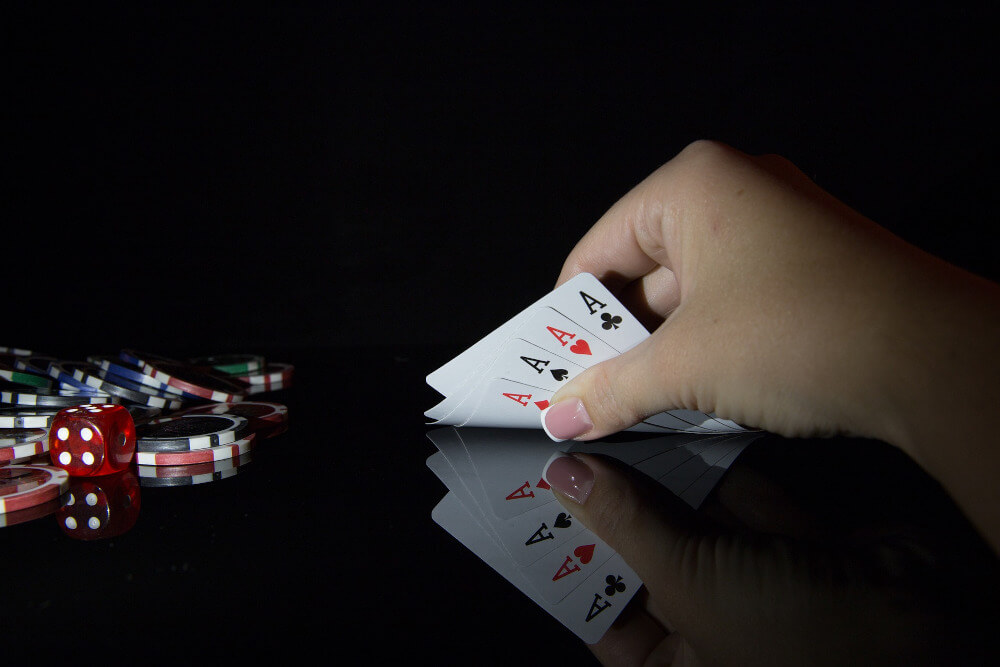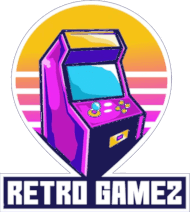The game's simplicity is one of the reasons for its longevity. The goal is to get a hand close to 21 without going over. A hand exceeding 21 is a bust. At a blackjack table, players compete against the dealer, not each other. Just beat the dealer's hand.
In blackjack, suits are irrelevant. The value of numerical cards is 1, whereas image cards (Jacks, Queens, and Kings) are all worth 10. Aces might be worth 11 or one, depending on the player's preference. An ace and an eight, for example, is worth 19. (the Ace is valued at 11, known as a soft Ace). An Ace, Four, and Nine hand is worth 14. (the Ace is valued at one, known as a hard Ace, because if it were valued at 11 the hand would bust).
Half circle blackjack table The dealer is in the straight side, while the players are in the circle.
Casino tables feature minimum and maximum bets. Just find an open seat and place your stake on the small indicated space on the table directly in front of you to join a game.

See what occurs once the bets are placed and the dealing starts.
One by one, the dealer deals two cards to each player after all bets are put. The players' cards are dealt face down in Nevada Deal. It's time for the dealer to deal himself two cards. The players' cards are handed face up, and the dealer gets one as well. The players can see one of the dealer's cards in each circumstance.
Based on the one dealer card, each player chooses if his hand is close enough to 21 to defeat the dealer's. If so, he stands and the game continues. If a player wants to go closer to 21, he asks for a hit and gets another card. If the player hasn't busted from the initial hit, he can choose to be struck again or stand. Play continues until the present player busts or stands.
In Nevada Deal, the dealer shows his second card (in Nevada Deal), or deals himself a second card (in London Deal). The dealer must stay if his total is 17. Then he must hit if his total is 16. For every hand, the dealer must follow these rules. If the dealer busts, everyone else wins.
If the dealer doesn't bust, their hands are compared. With a 1-to-1 payment, the player wins. A tie is a push; the player loses his stake.
Getting a blackjack (an Ace and a 10 card as your first two cards) is a sure win. It pays 3:2, or 1.5 times the original bet. If the dealer gets a blackjack, everyone loses. No one gets blackjack, so there's no winner.
Options for Blackjack
Players at a blackjack table have a few extra options:
In this case, the player must take an additional (and only one) card from the dealer. A 2-to-1 payment on the total doubled bet if he wins.
Splitting - If the player's first two cards are a pair, he can split them into two hands. A pair of 10s (Tens, Jacks, Queens, or Kings) is regarded a pair for dividing purposes. Both hands are played independently, with a new bet equal to the initial amount. In this case, the two hands are split again, resulting in three hands. The number of splits a player can make varies every casino. Even if an Ace and a 10-value card are divided, the hand still counts as 21, but not as a genuine blackjack.
Doubling after Splitting - Some casinos offer doubling after splitting.
Surrender - Once the dealer has checked and confirmed that he does not have blackjack, players can surrender their hand and obtain half of their stake back. This option is most common in casinos outside the US. Early Surrender is the opportunity to surrender before the dealer checks for blackjack.
Insurance is available whenever the dealer has an Ace showing. Buying insurance is like wagering on blackjack. If the dealer has blackjack, the insurance bet pays 2-to-1, up to half the original wager. However, most experts believe that buying insurance is a terrible bet.
Five-card Charlie - Some casinos award this hand. You win if you keep hitting until you have five cards and haven't busted. The rule doesn't apply if you've split (see above) or if the dealer has blackjack.
Table Manners
- The game itself is easy, but there are casino regulations and traditions to observe to prevent a dealer reprimand.
- Don't touch the chips after you've bet. The dealer may suspect you of trying to up your stake because you have a nice hand.
- If you're doubling down, place the extra chips beside your original bet, not on top. Because the dealer doesn't always count your bets ahead of time, combining them may appear to double your bet.
- In a London Deal game, keep your cards face up. Casinos restrict this to prevent card marking.
- At a blackjack table, you can't just say "Hit me" or "Stand" to the dealer. In a crowded, noisy casino, it's possible for the dealer to misread your words or hear your play at another table. Hand signals are required here.
- The dealer's gaze will be fixed on the cards. Say "Hit me" and brush or scratch behind your cards to get another. Keep your cards close to the table behind your bet. Imagine creating a modest, upside-down "Come hither" motion.
- "Stay" or "Stand" is indicated with a brief hand wave. Imagine being offered a giant slice of pie, but you're stuffed. The "No, thanks" hand motion is the stand signal. Or slide your cards under your bet.
- At the table, pay attention. A gambler averted his gaze when a waiter inquired whether he wanted a drink. He mistakenly left his last hand's winnings in the betting circle and turned around to see the dealer had dealt him a £500 wager. He peered down and saw he had been dealt a natural blackjack. His inattention at a critical point could have resulted lack a massive loss.
- Toking the dealer is customary but not needed. The chips you use to tip are usually placed on the edge of the betting area between you and the dealer. You're actually betting the dealer's tip. If you win, you double the dealer's tip. You lose, the dealer loses.
- Before you start playing, swap your cash for chips at the casino's cage. However, most blackjack tables have a cash box. Put your money on the table and the dealer will turn it into chips. In some casinos, you can even place cash bets and get your gains back as chips. The dealer cannot and will not change your chips back into cash. Stacks of small-denomination ships can be traded in for larger-denomination ships.
